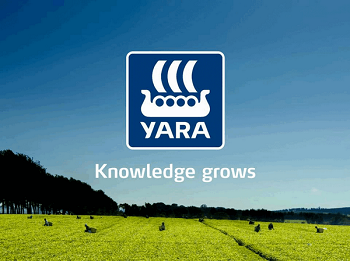Chemical
Yara reports improved margins and lower fixed cost
Company's market environment is in a positive trend overall, with a broadly stable global grain balance and receding urea supply pressure.
-
By ICN Bureau | July 20, 2020
Yara’s second-quarter EBITDA excluding special items was up 8% compared with a year earlier, mainly driven by improved margins and lower fixed cost. Net income after non-controlling interests was USD 223 million (USD 0.83 per share), compared with USD 230 million (USD 0.84 per share) a year earlier. Excluding currency effects and special items, the result was USD 1.06 per share compared with USD 0.77 per share in second quarter 2019.
Second-quarter operating income was USD 335 million, up from USD 266 million a year earlier. Second-quarter EBITDA excluding special items was USD 588 million, up from USD 546 million a year earlier.
“Yara delivers improved results, with second-quarter EBITDA excluding special items up 8%. I am pleased to see the Yara organization continuing to perform well in a demanding environment,” said Svein Tore Holsether, President and Chief Executive Officer of Yara.
“Our cash flow also continued to improve, with more than one billion US dollars of free cash flow generated over the last four quarters, and completion of the Qafco transaction expected within 2-3 weeks. We will initiate a buyback of 5% of Yara’s share capital upon completion and receipt of the Qafco proceeds,” said Holsether.
Sales and Marketing deliveries were down 2% compared with a year earlier, with lower volumes in Europe due to early spring phasing of deliveries, partly offset by higher deliveries in Brazil. The overall margin development was positive compared to a year earlier. New Business deliveries were 34% lower, as Covid-19 impacted the Maritime business and industrial nitrogen demand. Yara’s ammonia production was down 14% and finished fertilizer production was down 7% compared to a year earlier, mainly due to the closure of the Trinidad plant and reclassification of Qafco.
Yara’s market environment is in a positive trend overall, with a broadly stable global grain balance and receding urea supply pressure. Fertilizer and food demand is resilient also in times of crisis, and ensuring continuity in food production and related value chains remains a top priority for all countries. Nitrogen fertilizer markets are robust, with normal planting and application in the Northern hemisphere and strong demand from Brazil ahead of the Southern hemisphere main season. Yara’s industrial business has seen weaker demand in second quarter, but with improvement towards the end of the quarter.
